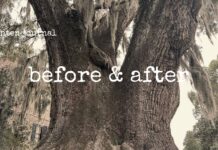I preached last Sunday at North Madison Congregational Church UCC—my first time to preach there. I drew from two passages, Ephesians 6:10-20 and 1 Samuel 17:31-40, both of them having to do with armor.
—————————-
I have to start this morning with two confessions. The first is that I have never found much use for battle as a metaphor for life or faith. I don’t mean to say there is no conflict in life, but that I have yet to find a situation in my life, or in history for that matter, where responding to violence with violence proved to be a healing solution. I could go on, but I’ll leave it there for now.
My second confession has to do with the sermon title in the order of service: “The Grammar of Grace.” It’s wrong. Most of what I had to say when I sent in that title is still here, but sermon preparation, for me, is a bit like a Chopped, the show where the chefs have to make something out of the ingredients that are put in front of them. I pick up ingredients all week long, so the dish keeps changing. So let me tell you what ingredients I found and maybe by the end of the sermon I’ll know what the title should have been.
Even with all its battle language, the passage from Ephesians is meaningful to me, mostly because of a sermon I heard my father preach many years ago. I remember it because he talked about prepositions, which I found far more interesting than he did on most occasions.
“When we say, ‘the armor of God,’” my father said, “we have to understand that the preposition is descriptive and not possessive. The armor of God is not something God has that God gives us like a uniform. The armor is God. We wrap ourselves up in the Spirit of God.”
I can’t read the passage without hearing his words. And you can see where my first title came from. As a former high school English teacher, it was too good. But then I read the words of David Finnegan-Hosey, one of the authors I worked with this year, who is a UCC minister and the chaplain at Barton College in North Carolina. He wrote a piece for the UCC Mental Health Network looking at our two passages for this week—one where Paul calls us to put on armor, and the other the story of David taking off the unnecessary armor that was thrust upon him..
David closed his article by saying, “My prayer for the church this week is that we can be a place where people can take off the ill-fitting armor that they have learned to wear to try to protect themselves from the world, and instead put on a different kind of armor, one made up of peace, of prayer, of love. This armor, rather than cutting us off from each other, will connect us to each other and to God, so that we can stand, not alone, but together.”
When I finished the article, I sent a note to the office and added the passage from 1 Samuel.
The final piece found me yesterday as I was wandering the back roads between East Haven and Guilford, trying to get around the snarled traffic on I-95. “The Power of Design” was the focus of the TED Radio Hour, one of my favorite NPR shows, and Tony Faddel, who led the team that created the iPod and iPhone, and then created the NEST thermostat, was the speaker.
He started off talking about how we get used to everyday things, even when they aren’t helpful, and he used the stickers on our fruits and vegetables as an example. They help us at check out, but they are a pain when we get home and want to eat the fruit. We got frustrated the first time we tried to peel them off. Then we got used to it. And we got used to it because, as people, we become numb to bad design. The process, he said, is called habituation—our brains learn things that become habits in order to free up space to do new things.
Habituation can be helpful. He mentioned learning to drive. I thought about playing guitar. I don’t have to think about how to shape the chords with my left hand. My fingers know where to go. If we didn’t habituate, he said, we would notice every detail and be unable to learn anything new. But when it numbs us—when we learn to live with bad design—it stops us from noticing and fixing the problems around us and we stop looking for new ways to live and learn.
He offered three tips for making good design that also speak to us this morning.
- Look broader: notice the larger context. Look at the factors that came before the problem, and the ones that will come after.
- Look closer: identify the missing details. Pay attention to the small stuff.
- Look younger: he wasn’t talking about Oil of Olay. He said Steve Jobs always challenged them to “stay beginners.” Faddel talked about listening to his children’s questions as they encountered the world. And he quoted Picasso, who said, “Every child is an artist. The problem is when he or she grows up is how to remain an artist.”
And I thought about David. He was a kid: picture a seasoned, seventh-grade shepherd. The reason he was on the battlefield at all was that his father sent him to check on his older brothers, who were in the army. While he was there, David heard Goliath taunting the Israelites, so he went to Saul and volunteered to stand up to him.
Saul finally agreed to let him go, but Saul was blinded by the habituations of combat. If David was going to fight, he needed armor. He brought a helmet and a coat of chain mail—not the letter, but the metal suit—a shield and a sword and layered them all on the brave little middle schooler. David couldn’t even walk, so he took it all off. It was bad design, if you will. The big picture, for him, was to trust God and his own abilities. He had killed lions and bears in the field. The closer look was to choose the five stones from the river for his slingshot. And off he went to meet the giant.
Now let’s circle back around to the chaplain David’s words about both taking off our armor and putting it on. One of the problems with using battle as a metaphor for faith is that war is about power and fear, and faith is about trust and relationship. Paul was writing to Christians who were being terrorized by the Roman army. They were being jailed, beaten, and killed. He leans hard into battle language. But I think there’s a certain irony in the way Paul implores them to put on the armor of God because the armor he names is truth, righteousness, peace, faith, and salvation, or grace, which brings me back to my dad’s take on the prepositions. Paul wasn’t describing weapons. He was describing God.
To put on the armor of God is to wrap ourselves in the Spirit of Christ, to look broader than our fears and our pain and see what got us to where we are and look for what lies ahead. To put on the armor of God is to wrap ourselves in the Sprit of Christ that gives us eyes to look closer and see all that binds us together even as we feel thrown to the edges by the centrifugal force of life. To put on the armor of God is to wrap ourselves in the Spirit of God so that we can see with younger eyes, so that we can become like children, willing to ask wide-open questions and trust that nothing—absolutely nothing—can separate us from the love of God.
To put on the armor of God is to break our habituations that have allowed us to learn to live with fear as our national currency, or that led us to think that nothing can really change, or that reinforce that we are on our own. To put on the armor of God is to remember that we are wonderfully and uniquely created in the image of God and worthy to be loved. To put on the armor of God is to stay beginners and keep asking questions, rather than allow our habituations to give in to our fears or numb us to the hope ahead.
Let us remember that the armor of God is not designed to be put on one time, but something we do over and over again. We know we need the armor of God as we face life’s big challenges, but we need to wrap ourselves in the Spirit of Christ over and over, as we drive out kids to school, or deal with our coworkers, as we stand in line at the grocery store, or sit in a church committee meeting. Putting on the armor of God is how we dress for the day. Hey—maybe that’s the title: dressing for the day. To put on the armor of God is to wrap ourselves in the Spirit of Christ that we might be reminded that life is not just one the same ol’ same ol’, over and over again. This is the day our God has made, let us rejoice and stay beginners. Amen.
Peace,
Milton







It is pure joy for me to read your words. Thank you Milton. Amen.
Loved this! I especially love hearing the stories of your dad. Thank you for sharing your heart.